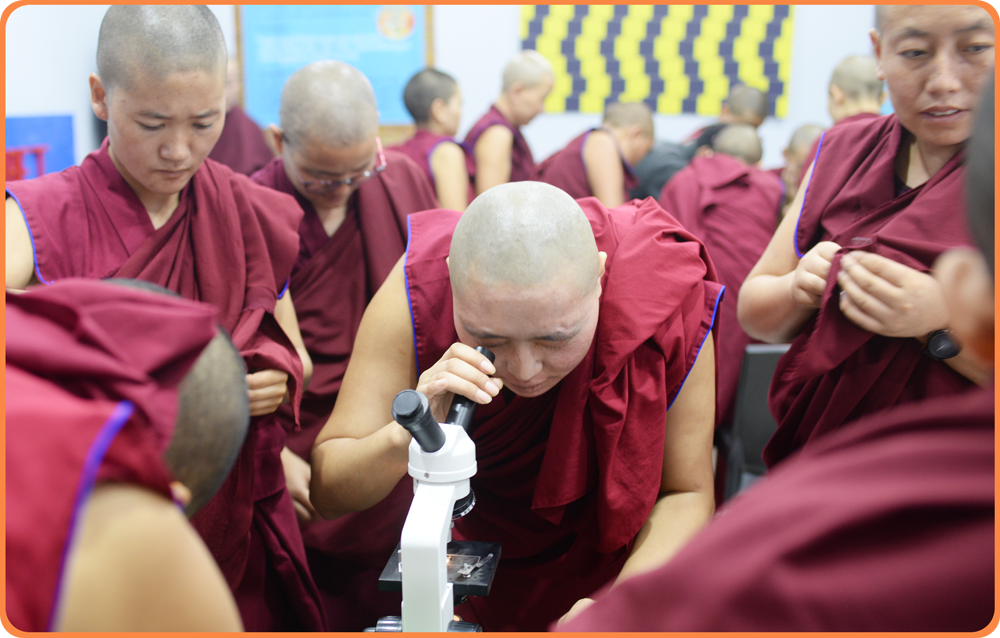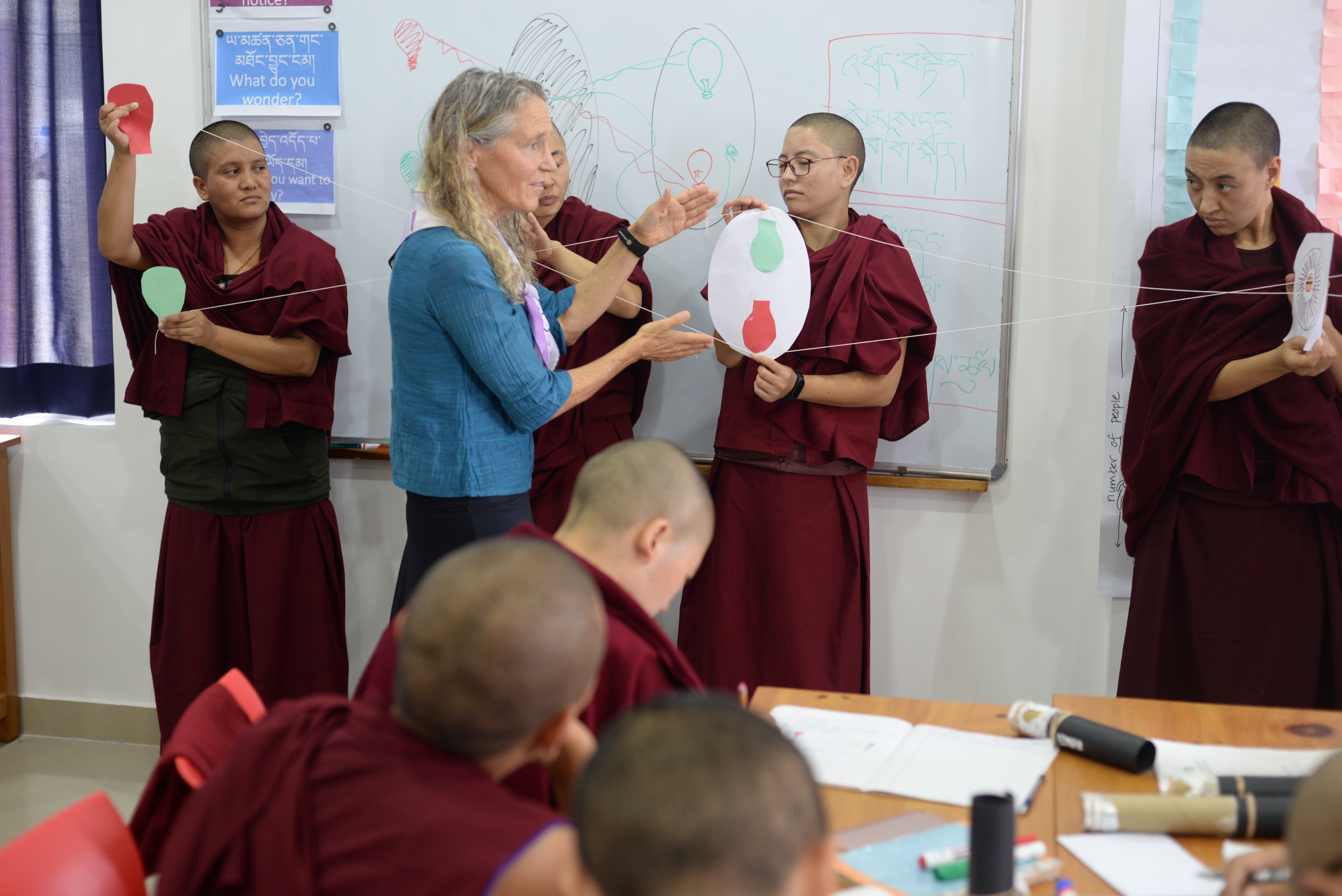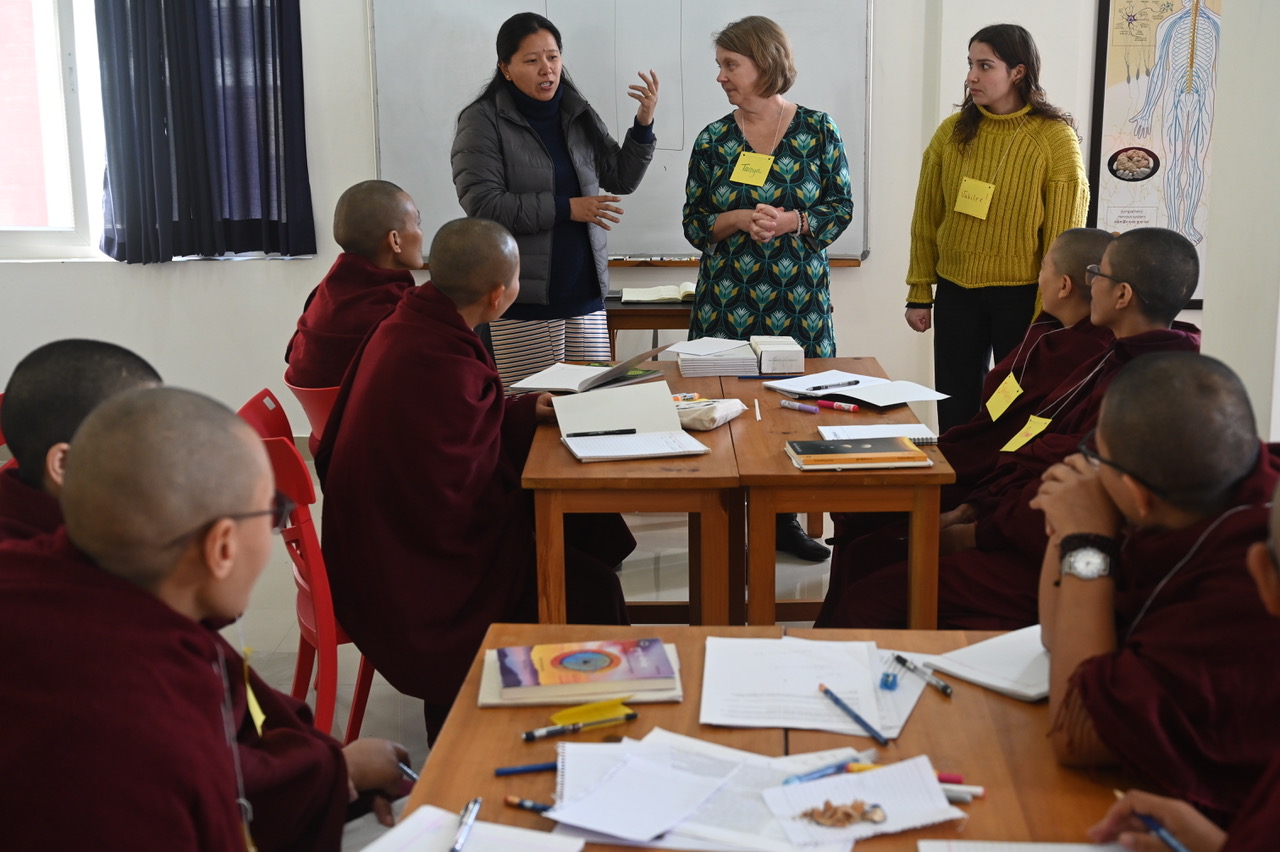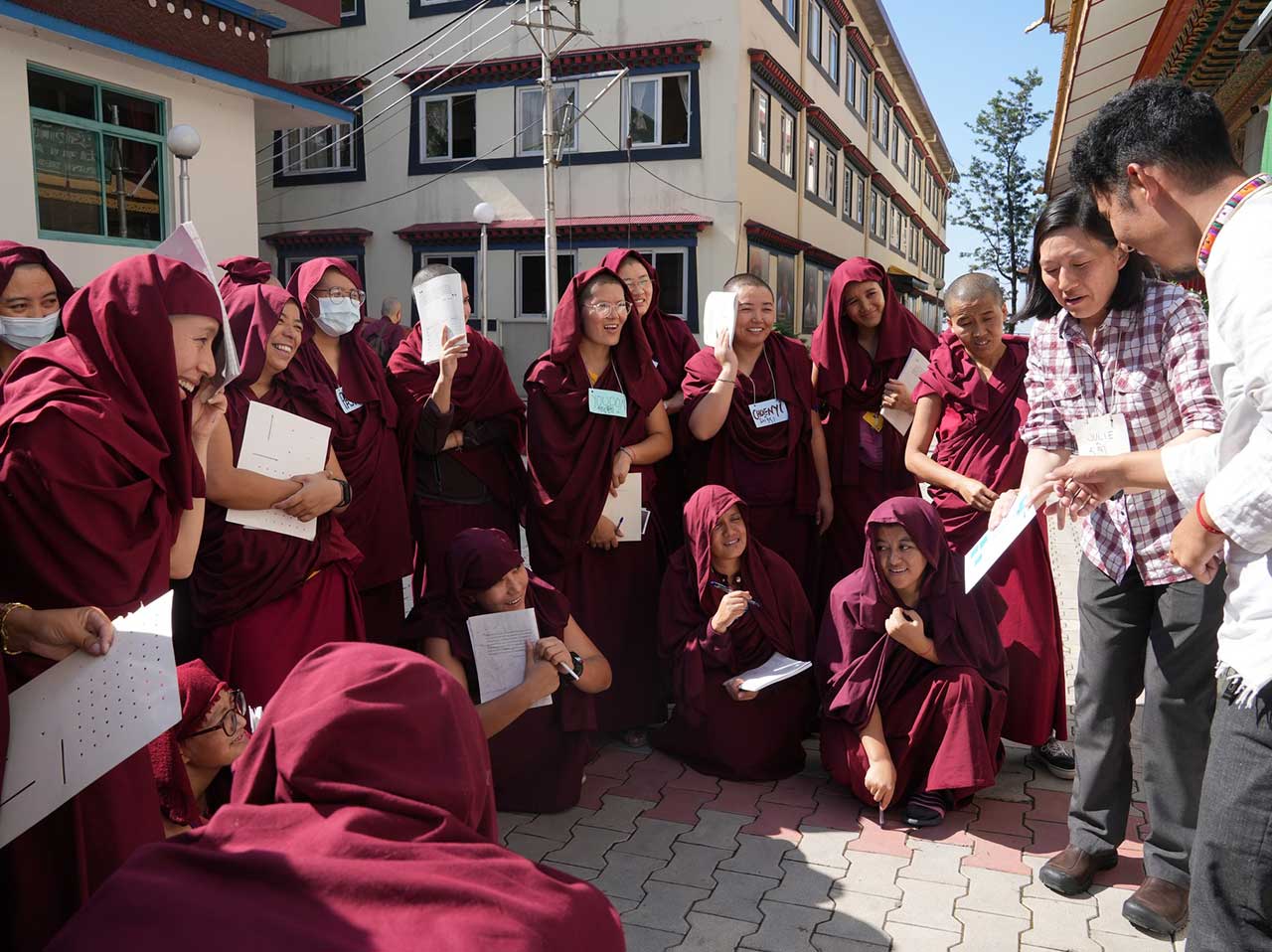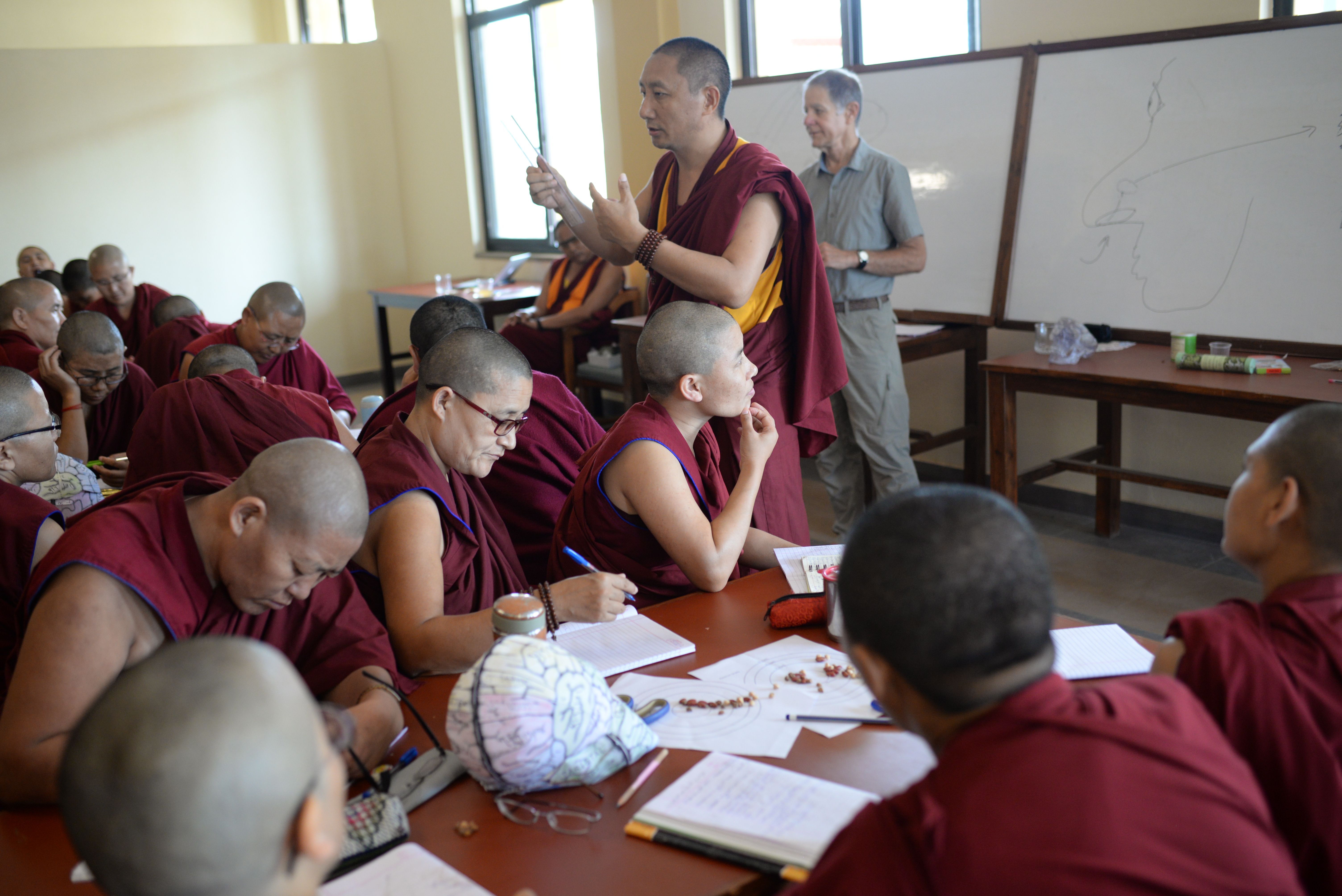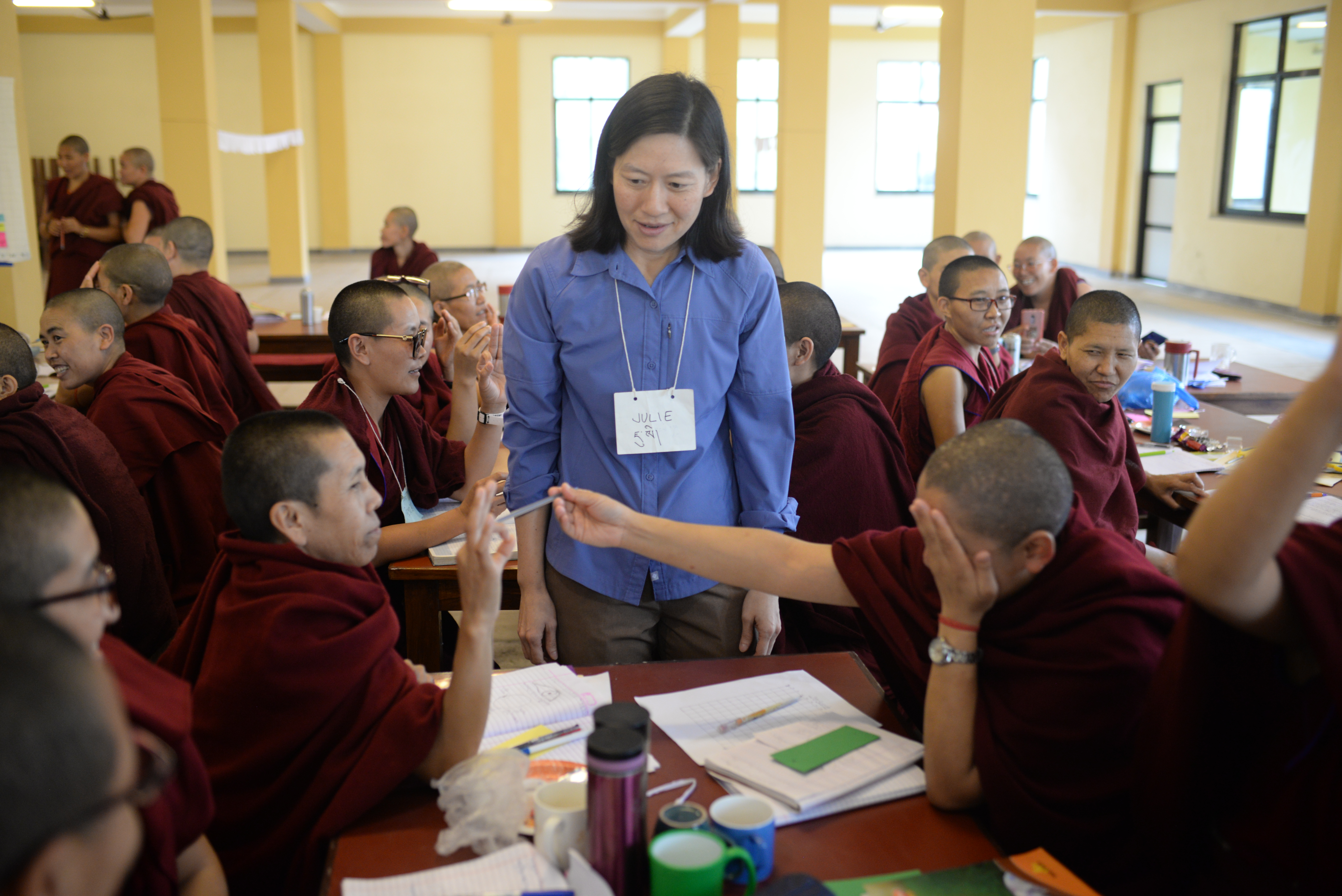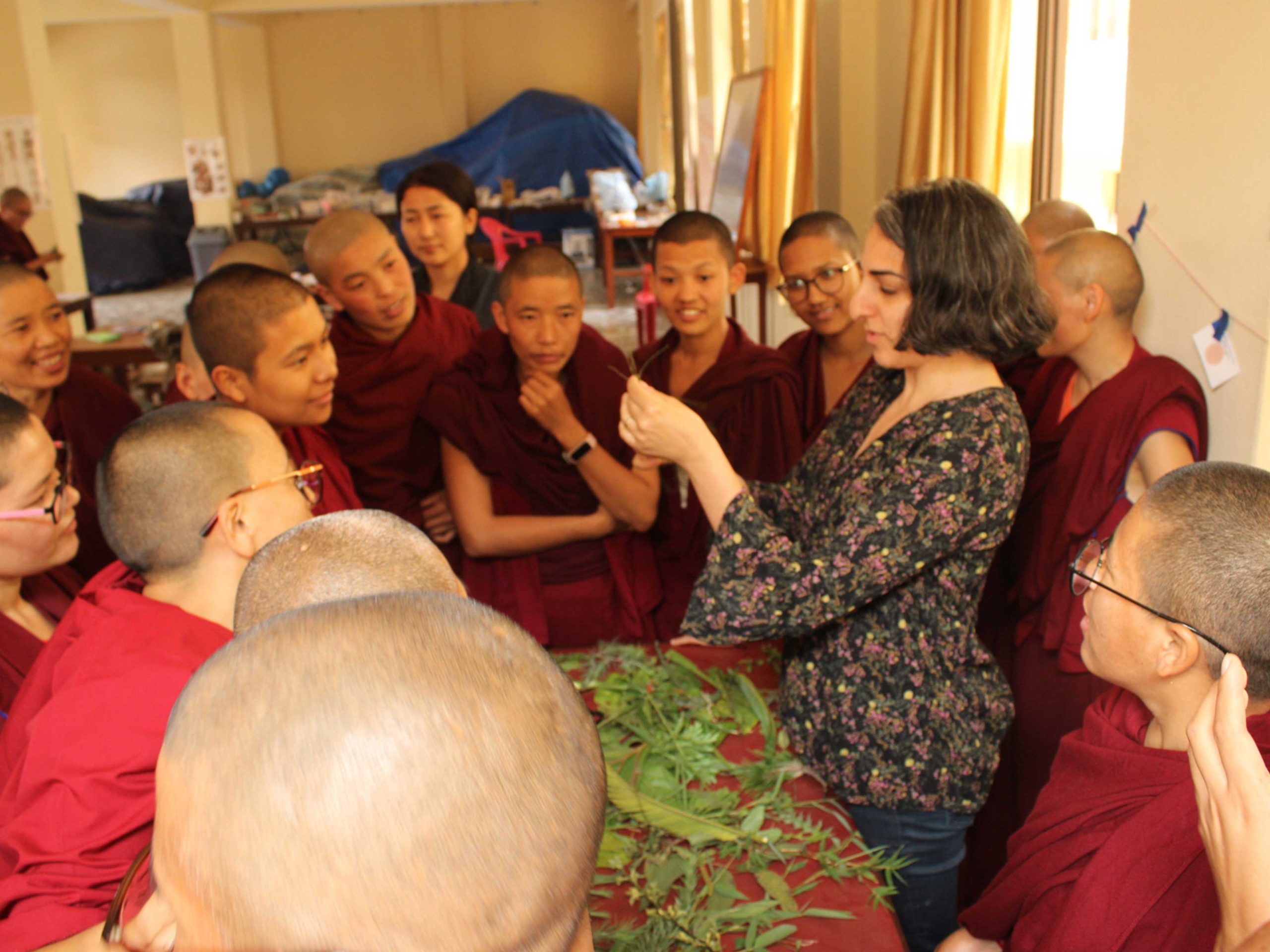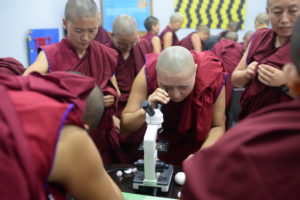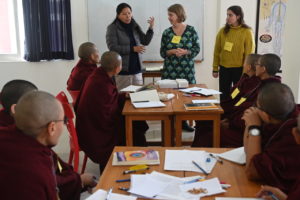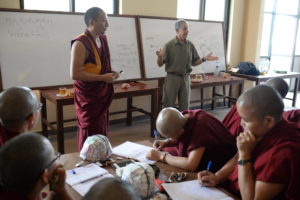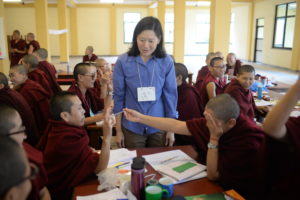1st Leadership Cohort
In September, 2019, we recruited a volunteer group of 33 nuns from five different nunneries that will receive three years of support and training. Bi-annual institutes and nun-driven projects will provide a structure for these nun-leaders to do things, to build their confidence and lead with vision. Nuns, as leaders of science, through the activities they facilitate, will further the dialogue with science started by His Holiness the 14th Dalai Lama, take on new education and community development initiatives, and improve and strengthen monastic education.
Institute I – Fall Meeting (3-weeks)
September 3rd to 20th, 2019
Library of Tibetan Works and Archives
Faculty
Institute II – Spring Meeting (1-week)
March 2nd to 7th, 2020
Library of Tibetan Works and Archives
Faculty
Institute III- Autumn Meeting (3-weeks)
16 September to 7 October, 2022
Library of Tibetan Works and Archives
Faculty
Institute IV- Neuroscience Workshop (3-weeks)
12-30 March, 2023
Library of Tibetan Works and Archives
Faculty
Exploratory Workshops at Kopan Nunnery, Kathmandu
Intensive introductory workshops have reached 40 scholarly nuns, all philosophy students at Kopan Nunnery. The purpose of the workshops was to help introduce basic principles of science, explore scientific practices and provide a baseline foundation for future learning and activities. Kopan Nunnery is located in Kathmandu, and, with more than 400 nuns, is the largest nunnery in Nepal.
5-Day Introductory Science Workshop – “The Senses”
July 29 to August 2, 2018
Faculty
10-Day Introductory Science Workshop – “What is Life?”
April 24 to May 4, 2019
Faculty
18-Day Introductory Science Workshop – “Biology”
11 – 29 April, 2022
Faculty
Nuns, mostly from Gelug nunneries in India, have been involved in nearly all our programs since 2008. But until 2017, nuns never comprised more than about 20% of the participating monastics in any one year. In 2017, we organized our first all-nuns program, a 4-week introductory workshop (see more…) and a 3-day conference (see more…)
“There are interesting differences and similarities in science and Buddhism. For example, a similarity is the concept of interdependence among all organisms and a difference is that science claims that mental functions are carried out by the nervous system.”
Tenzin Youdon
Monastic Graduate (Nun) Participant
(September, 2017)
Nuns want to have the same leadership trainings as monks. Buddhist nuns can play an essential role in helping to strengthen and modernize this vibrant thousand-year-old learning community. We have an enduring vision of a growing and energetic network of nun science leaders who will actively shape activities that infuse scientific inquiry while simultaneously leveraging the wisdom and practices of their learning tradition.
Some of the major Nunneries in India, Nepal, and Bhutan (we hope to reach)
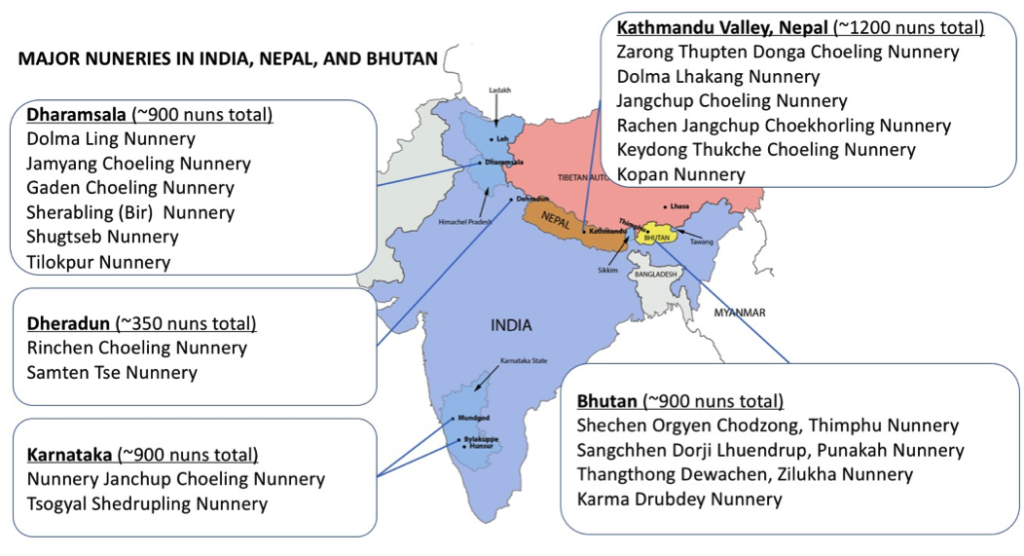
In 2016, after nearly 30 years of the Dalai Lama’s pushing for reform, the first Gelug nuns in India graduated with geshe degrees (equivalent of a PhD degree), and a few science questions were part of their final exam. Enough nuns in India have now been involved with science to establish an opportunity, a demand, and the nuns themselves have requested more opportunities, including an all-nuns leadership program. Nuns constitute about 10% of the overall monastic population.


